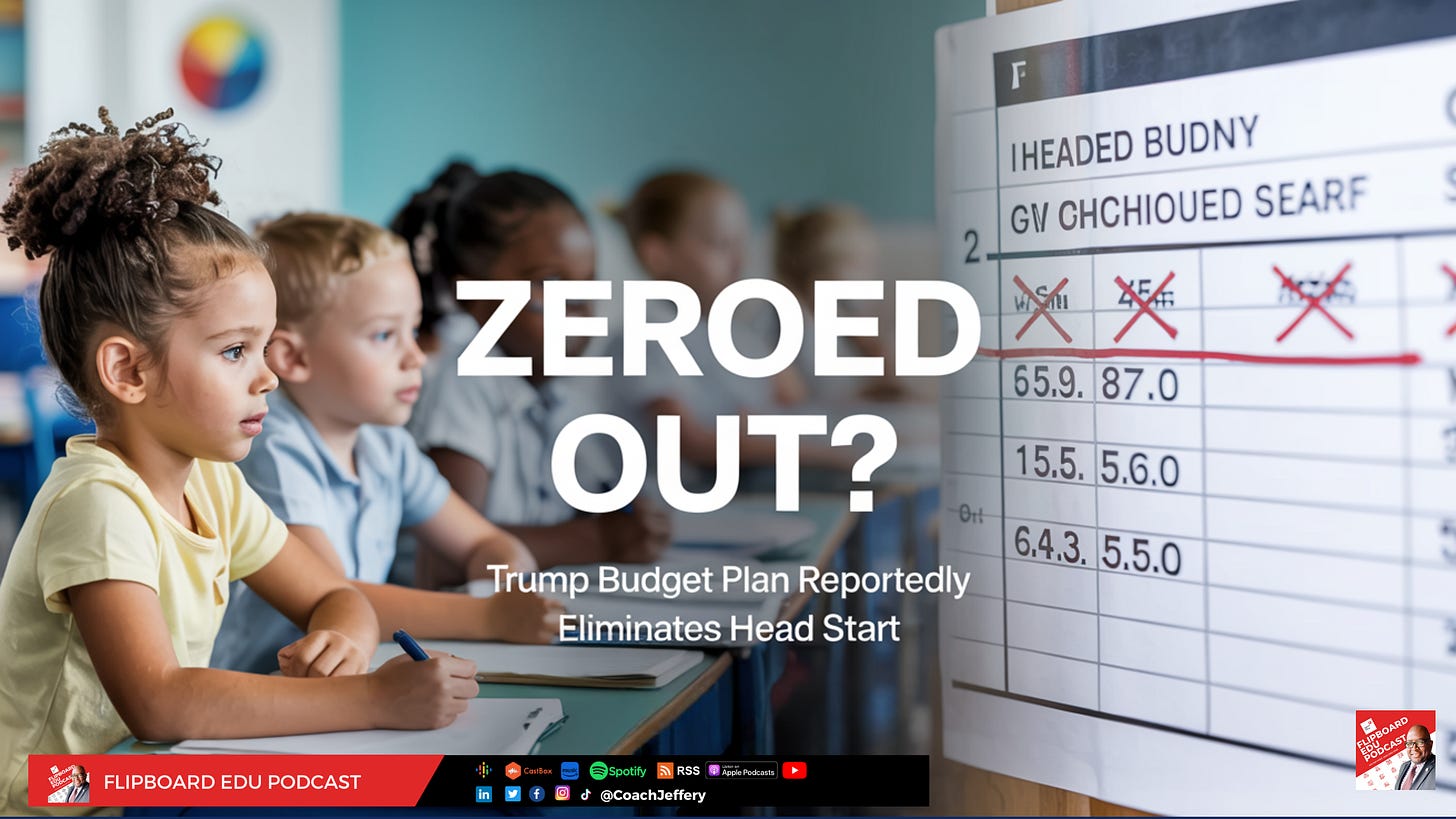ZEROED OUT? Trump Budget Plan Reportedly Eliminates Head Start
For deeper analysis on this critical issue, tune into the Flipboard EDU Podcast.
A shockwave is reverberating through the early childhood education community as reports surface of a potential plan by the Trump administration to completely eliminate federal funding for Head Start. This foundational program, a cornerstone of America's investment in vulnerable children for nearly six decades, faces an existential threat that advocates warn could be "catastrophic."
The Proposed Cut: A Stark Reality
Multiple sources indicate the severity of the situation. An excerpt bluntly states, "TRUMP JUST THIS WEEK HAS REVEALED A BUDGET PLAN THAT WILL ENTIRELY ELIMINATE THE HEAD START PROGRAM EVERYWHERE IN THE COUNTRY." The National Head Start Association (NHSA) launched an urgent Act Now campaign, directly appealing to President Trump to "SAVE HEAD START!" Their message underscores the gravity: "Eliminating funding for Head Start would be catastrophic! To children. To families. To communities." Concerns are widespread, even bubbling up in online forums like Reddit, where early childhood education (ECE) professionals express fears that the program might simply "disappear," reflecting anxieties about the administration's view on ECE.
What is Head Start? A Pillar of Opportunity
Before examining the potential fallout, it's crucial to understand what Head Start represents. Established in 1965 during President Lyndon Johnson's War on Poverty, its mission, as outlined by sources like the Brookings Institution, is clear: "to promote school readiness through the provision of health, educational, nutritional, and social services" for low-income families. Its reach is vast, operating in every state, many tribal nations, and U.S. territories, serving over 800,000 children and pregnant women annually and benefiting nearly 40 million families since its inception (Democracy Labs).
The Evidence is Clear: Head Start Works
Opponents of the proposed cuts aren't just relying on sentiment; they're armed with data. The NHSA's Head Start Works initiative compiles compelling evidence of the program's positive impact:
School Readiness: Improved cognitive and social-emotional skills, better kindergarten attendance, higher reading benchmarks.
Long-Term Academic Success: Higher math scores in 8th grade, lower chronic absenteeism, reduced likelihood of being held back.
Health & Well-being: Fewer behavioral problems, lower need for special education, fewer child welfare encounters (for Early Head Start), and remarkably, significantly lower mortality rates for young children who attended.
Family & Generational Impact: Parents show increased education levels and improved parenting practices. Crucially, children of Head Start graduates are more likely to finish high school and attend college, and less likely to face teen parenthood or criminal justice involvement. The benefits ripple across generations.
"Catastrophic" Consequences and Fierce Opposition
Given the proven benefits, the term "catastrophic" isn't hyperbole. Organizations like First Focus on Children frame it starkly: "Killing Head Start bad for kids, bad for America."
The proposed elimination has ignited strong political opposition. Senator Patty Murray, quoted by the Associated Press, lambasted the proposal: "This administration believes we cannot afford to help families get preschool or help kids get basic health services, but we can afford trillions of dollars more in tax breaks for billionaires. It’s offensive and just plain wrong... Democrats won’t let a proposal like this go anywhere in Congress." The NHSA's campaign is actively mobilizing parents, alumni, and supporters to pressure policymakers.
Some commentators place this threat within a broader context of controversial budget cuts and potentially shifting priorities regarding federal support for social and educational programs, possibly linking it to broader agendas discussed by the National Education Association (NEA).
Conclusion: A Fight for the Future
The proposal to defund Head Start represents a potential turning point with profound implications. It challenges a nearly 60-year bipartisan investment in early childhood development and threatens a program demonstrably linked to better health, education, and life outcomes for millions of vulnerable Americans. As advocacy groups mobilize and political battles loom, the future of Head Start hangs in the balance.
What would the elimination of Head Start mean for your community? How can advocates effectively make the case for its continued funding? Join the conversation and listen to the Flipboard EDU Podcast for ongoing coverage.





